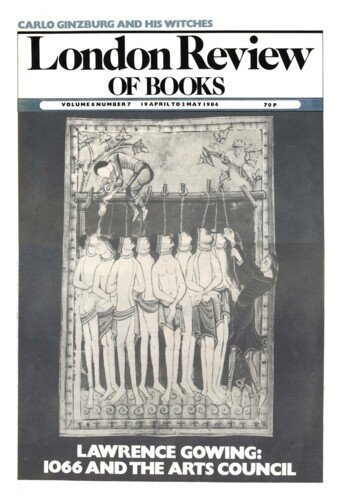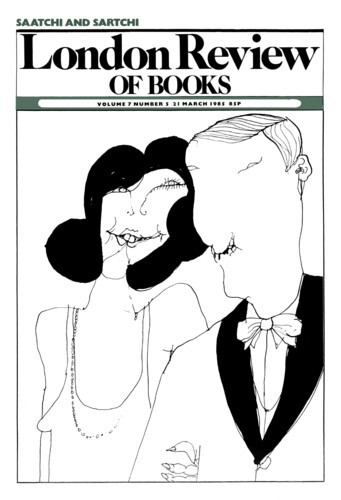Eventlessness
Norman Hampson, 19 April 1984
This is the first volume to appear in the ‘Fontana History of Modern France’, edited by Douglas Johnson, which will eventually cover the period from the Ancien Régime to the present day. The intention is presumably to provide the student and general reader with a synthesis of the enormous amount of new writing on French history since Alfred Cobban published his much shorter history of modern France twenty years ago. The mere existence of this formidable corpus of information presents the writers of the new series with both opportunities and problems. With more space at their disposal than Cobban, they can afford to get away from Parisian politics, explore social and intellectual history and take account of the complexities of regional variation. At the same time, they are writing for a public that cannot be assumed to have any previous knowledge of what was going on. This calls for a framework of political history. Unless the reader is told which regimes succeeded which, and when, the study of the changing balance of social forces is likely to confuse him. Once this political basis is established, one can, of course, argue that it was the outcome of social conflicts. The social structure of France did not change much between 1847 and 1852, but it would be a bold determinist who argued that the way in which France passed from a monarchy through a republic to an empire was therefore of minor importance. General history of this kind has no need to be impersonal. If the pursuit of impartiality implies the elimination of the personality of the historian, it is likely, in practice, to mean that he endorses past orthodoxies, whether or not he is aware of doing so. Such pusillanimous objectives make for dull reading and the mechanical retelling of a familiar tale. At the same time, the historian must play fair. The reader of a textbook is entitled to know when his author is giving him the consensus of scholarly opinion and when he is putting forward an interpretation of his own. History can seem more exciting when the writer believes that one interpretation has been refuted by another, or when his own belief in the way things happen in history imposes a particular way of looking at the period as a whole: but the reader has to feel that the historian is a genuine explorer and not primarily concerned to impose a preconceived pattern on such parts of the evidence as he chooses to examine. Procrustes may have had a tidy mind, but one has doubts about his methodology. On all of these counts Roger Magraw’s book invites serious reservations.



